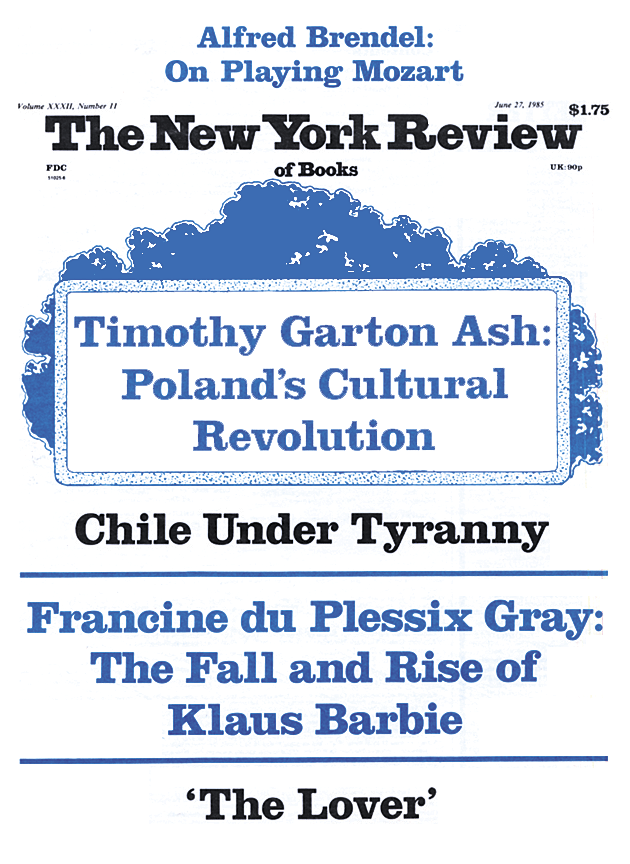In response to:
Betwixt, Bothered & Bewildered from the December 20, 1984 issue
To the Editors:
I do not know which version of Jack and the Beanstalk Mary Douglas has been reading [NYR, December 20, 1984]. Surely it is the ogre’s wife who helps the hero to escape, not a talking hen which appears to be an amalgam of the second and third treasures Jack steals, a hen which lays golden eggs and a talking harp. The latter indeed sings out to warn the ogre that it is being stolen. Rather unfair one might feel, given that, in some versions of the story, it originally belonged to Jack’s father.
Not so surprising however if the psychoanalytic (American?) interpretation is followed—for the ogre is Jack’s father. Why should the tale in its transfer to a “hot culture” (America) from a, well, not so hot culture (England) thus take on such a synchronic aspect? Perhaps Professor Douglas as a mediating being can bridge these contrasts for us?
Roland Littlewood
Wolfson College
Oxford, England
Mary Douglas replies:
Mr. Littlewood’s suggestion that the ogre could be Jack’s father seems temptingly to expand the application of the Egyptian mythological model, with Jack presented as Horus, son of a child-massacring Pharaoh figure on high. But the awkward questions he raises about the right version confirms the wisdom of sticking to sacred texts with clear canonical status, if you want to analyze myths this way.
This Issue
June 27, 1985


